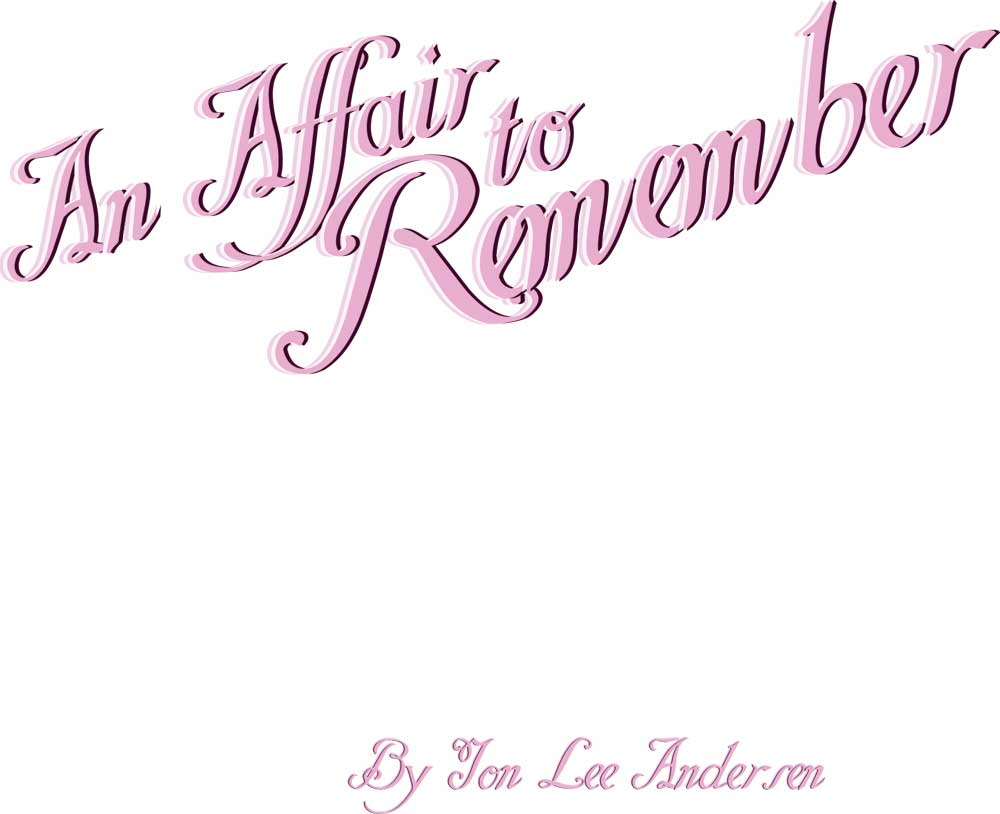
An Affair to Remember
(Especially If You Are Creative)
by Jon Lee Andersen
Over the past several years, I have written a number of articles addressing copyright issues. Several have appeared in this publication, as I thought they might be of interest to its readers. These articles have examined such issues as "fair use," "public domain" and registration pointers. This article addresses an interesting exception to copyright protection - a "loophole," so to speak.
Copyright protection extents to "original works of authorship fixed in any tangible medium of expression." What it doesn't protect are ideas, procedures, processes, systems, methods of operation, concepts, principles or discoveries. Put another way, copyright laws protect expressions of ideas, not the ideas themselves. This dichotomy frequently arises when an author or artist claims that someone has stolen their idea and turned it into a successful creative endeavor. It happens in movies, photographs, commercials, songs, books, video games and computer command codes.
So what are the legal factors in play here? Why can't an author of a book entitled Fort Apache Bronx, NY, about a South Bronx police station, replete with Irish policemen, prostitutes, drunks and morale issues successfully make a copyright infringement case against Time-Life Films - who made a movie called Fort Apache, The Bronx starring Paul Newman? The reason is the doctrine of "scˇnes ‡ faire."
Scˇnes ‡ faire is generally translated from French as "scenes that must be done." I understand that it originated with French drama critics, describing scenes that were absolutely necessary for a play - or that, if they were omitted, would be cause for major disappointment. In a comic opera, for example, the final act straightens out all the confusion and couples are happily united.
In United States copyright law today, courts interpret scˇnes ‡ faire to mean scenes which are necessary, standard or stock, or that flow naturally from a basic plotline. Two theories support the courts' thinking in the application of scˇnes ‡ faire reasoning to such cases as Fort Apache: Either such scenes are not "original," or they are merely "ideas."
Courts have noted that where elements are generated naturally from a setting, they are not original expressions of an author, but are the necessary requirements of a story in that setting. (That says a lot for the Bronx police force, doesn't it?) Where scenes are trite, clichˇd or stock in the
treatment of a subject, they cannot be protected by copyright. To do so would unfairly limit these scenes. As someone once said, "There are no new story themes, only new stories using these themes."
Ideas likewise are not protected by copyright. Indeed, copyright laws recognize that free exchange of ideas is in the interest of society, and that progress and improvement are frequently built upon the prior works of others. Ideas (and I am ignoring patent laws here) must remain free for all to use, and in some circumstances the most logical way of expressing those ideas should also be available to all. When that is the case, as it frequently is in computer code situations, then others are free to use the work.
So for all budding authors who are concerned about writing a book about a discovery of dinosaurs in some remote, lost island of the world, I suspect that the scˇnes ‡ faire doctrine would protect you from Michael Crichton's legal armada.
Or, summarized another way:
The author had Robert and Claire
Making castles of clouds in the air
But because it was trite
The law copyright
Would consider it to be scˇnes ‡ faire.
© July 2005 Jon Lee Andersen All Rights Reserved

